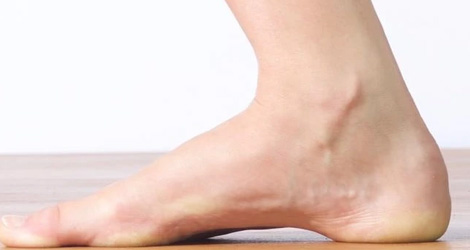
Pes Cavus, known also as a high instep or supinated foot, is a foot with abnormally high arch that does not fall flat upon weight bearing. People with this condition place too much stress on the ball of the foot while walking or standing and can suffer from arch pain or pain in the ball of their foot. Too much weight bearing can also result in a collapse of the arch. For some people it can also be more challenging to find shoes that fit and getting support under the arch is important for comfort and stress relief.
Custom orthotics, deep shoes and orthopedic shoes are good foot solutions for pes cavus.

Pes Cavus, known also as a high instep or supinated foot, is a foot condition classified by an arch that does not fall flat upon bearing weight. In Latin, pes cavus stands for “hollow foot”. It is medically described as a multi-planar foot deformity most recognized by the presence of a noticeably high arch. Pes Cavus is known to occur in approximately 8-15% of the population, however, it is far less recognized than its counterpart, Pes Planus.
Pes Cavus is typically a result of a fixed plantar flexion of the foot. Plantar Flexion is the movement of the ankle, pointing the toes away from the shin (think pressing a gas pedal in your car). However, a fixed plantar flexion does not guarantee that a person has pes cavus.
Causes
- Medical Condition. Cavus foot is often caused by a neurologic disorder or other medical condition such as cerebral palsy, Charcot-Marie-Tooth disease, spina bifida, polio, muscular dystrophy, or stroke.
- Heredity. In other cases of cavus foot, the high arch may represent an inherited structural abnormality and it is usually bilateral
Custom Insoles
- Custom Insoles
- Shoes modified with built in arch support


